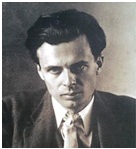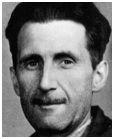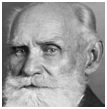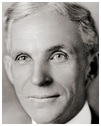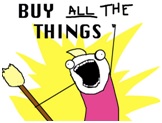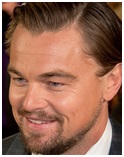|
 |
|
 |
|
|
||
Brave New World - The Future of Life and Work
Brave New World (1932) Written by the Englishman, Aldous Huxley (1894-1963), pictured right A famous book about the future like 1984 by George Orwell, pictured right below, whom Huxley taught at Eton (the English private school). Fun facts
Who influenced Huxley's writing of the book?
1. Henry
Ford’s mass production of cars.
2.Sigmund Freud's (pictured right) emphasis on sex.
3. Ivan Pavlov’s (pictured right below) conditioning (mind training) techniques - a key theme of the book is the suppression of truth through propaganda and brainwashing. Key characters Bernard Marx, expert in brainwashing John the Savage, social outcast. Linda, John’s mother Lenina Crowe, nurse Mustapha Mond, politician and scientist Helmholtz Watson, friend of Bernard and John The Director, boss of London’s baby factory Henry Foster, factory official
The story It is 500 years into the future, and everybody lives in the World State. It is a highly materialistic society with lots of sex, alcohol, recreational drugs (particularly soma the government backed tranquillizing and hallucinatory drug), pornographic films and indoctrination through propaganda and brainwashing. It is also divided into five classes. The leaders and professionals come from the Alphas and Betas and manual and clerical workers from the Deltas, Gammas and Epsilons. Babies are mass produced in factories (grown in bottles) to meet society’s needs. Some students are shown how this is done by
They also meet Henry’s lover, Lenina Crowe, a nurse. Lenina then dates Bernard Marx, an expert in “sleep-teaching” (a technique used to brainwash young people) who is considered abnormal because of his ugliness and dislike of society. They go on holiday to a reservation of “savages” (social rejects) in New Mexico, USA. One of the savages is John, highly educated, and disgusted with the World State’s immorality. He takes them to meet his mother, Linda. She had been taken there years earlier by her lover, the Director (of the London baby factory) The Director is publicly humiliated when Bernard realizes that John is his son and reveals his affair with Linda. John visits Lenina who takes him to a pornographic film and is disappointed that he doesn’t sleep with her. He refuses to go to a party Bernard is holding in his honour. The distinguished guests are angry. Bernard is comforted by his friend, Helmholtz Watson, a propaganda writer and another critic of society, who is impressed when John reads him some Shakespeare. John again refuses to have sex with Lenina and strongly objects to her promiscuity, despite being strongly attracted to her. Some children (brainwashed not to worry about death) are puzzled by John’s grief over his mother’s imminent
death. John is angered by his mother only speaking about her ex-lover, Popé, before her death
which John blames on soma, the hallucinatory drug. John tries to free some hospital workers from brainwashing and their supply of soma. In the consequent riot ,Helmholtz and Bernard try to rescue him. They are saved by the police and taken to Mustapha Mond who tells them the importance of:
After Bernard and Helmholtz are exiled to remote islands, John publicly criticizes Mond and becomes a recluse, trying to find spiritual perfection in an old lighthouse. The press becomes interested in him, and a documentary film is made about him, with long-distance cameras, attracting a crowd of spectators including Lenina and Henry. John goes berserk at this intrusion and beats Lenina, triggering an orgy of sex and violence. John, hugely remorseful, hangs himself.
Lessons for life and work
1. Use science and technology wisely The manufacture and brainwashing of children (called eugenics) shows how
dangerous science and technology can be, if they are used:
2. Fight for freedom and truth The interests of the individual are sacrificed for the state, illustrated by the government’s slogan: “When the individual feels, the community reels” Children are manufactured and then brainwashed so they don’t challenge the government and think for themselves. Truth is suppressed by government propaganda.
3. Save your soul The World State is an immoral society in which consumption of goods (see point 4) and
sexual pleasure dominate at the expense of people’s spiritual and creative fulfilment. John heroically realizes the importance of intellectual thought and morality. Instead of God, people worship Henry Ford (pictured right), the creator of mass production, which has made people’s jobs boring and soulless. Bernard Marx loves silence and the countryside, because they give him:
4. Consumption isn't necessarily cool People in the World State are conditioned to:
5. Know the true meaning of love John (to be played by Leonardo DiCaprio, pictured right, in a future film) knows that sex isn’t love and is angered by the government’s destruction of:
6. Painful self-examination makes you happy The World State is a superficial society where people don’t face up to their weaknesses and are fatally unaware
of their lost:
They are encouraged to remove painful thoughts with the hallucinatory drug, soma. Mustapha Mond calls this “Christianity without tears”, ignoring the fact that pain and difficulty are necessary for character development.
7. Class is crucial In the World State, the higher classes (Alpha and Beta) are richer, cleverer and get the best jobs.
8. Dictatorship is disastrous The people are controlled by an all powerful state.
9. Your past may come back to haunt you The Director’s career is ruined by the revelation of his ex-lover and son (John).
10. Insist on
individuality John fights for his freedom but individuality is destroyed in the World State by brainwashing people to achieve:
But Aldous Huxley believed that freedom shouldn't degenerate into anarchy and chaos “Any form of order is better than chaos”, Huxley said in a BBC interview
Key quote on government When the individual feels, the community reels, government slogan. No offence is so heinous as unothodoxy of behaviour, the Director (of the baby factory)
Key quote on time management Never put off till tomorrow the fun you can have today.
Two literature websites to recommend 1. sparknotes.com 2. litcharts.com |
|
|
||
|
|
||
| Copyright © wisdomtowin.com 2025 All Rights Reserved | ||
|


